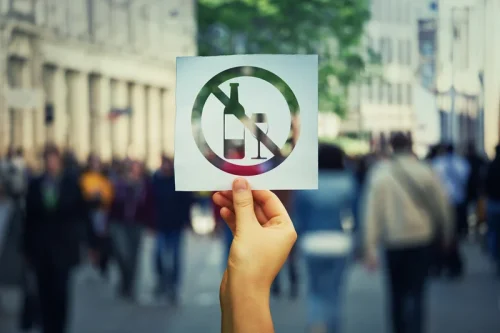
It draws on aspects of cognitive-behavioral therapy (CBT) and helps members to build motivation, cope with cravings, change addictive thoughts, and adopt healthy habits. Embracing the path of recovery is a courageous step toward a healthier, more fulfilling life. With faith as your foundation and a supportive community by your side, lasting change is not just possible—it is within reach. If you or a loved one is struggling with addiction, consider drug addiction recovery reaching out to a Christian rehab center today and take the first step toward a brighter future.

How do the best treatment programs help patients recover from addiction?

The single most popular path is the use of peer support groups in the community. SMART Recovery is a secular alternative to 12-step programs like AA. Rather than emphasizing powerlessness and embracing a https://ecosoberhouse.com/ higher power, the SMART Recovery approach emphasizes viewing substance use as a habit that people can learn to control.
Health Care Providers
Though it’s a treatable illness, substance use disorder recovery often involves a lifelong cycle of relapse (recurrence of use), withdrawal, and abstinence. Narcotics Anonymous (NA) is an international network of community-based meetings for those recovering from drug addiction. Modeled after Alcoholics Anonymous (AA), NA is an abstinence-based 12-step program with a defined process for overcoming addiction. Stress is a major amphetamine addiction treatment stimulus for drug craving, according to people with opioid addiction. Not surprisingly, life stress is one of the main reasons people give for relapsing into prescription drug misuse. For all these reasons, learning methods to better cope with stress is an essential part of recovery.

NA and Other Peer Support Groups for Drug Addiction

Below is a sampling of many types of support that can be found. In addition, self-care is a vital foundation for a healthy new identity. At the very least, self-care should include sleep hygiene, good nutrition, and physical activity. Sleep is essential for shoring up impulse control and fostering good decision-making. Another vital element of care during recovery is relapse prevention—learning specific strategies for dealing with cravings, stress, setbacks, difficult situations, and other predictable challenges.
Cope with drug cravings
- Abusing illegal or certain prescription drugs can create changes in the brain, causing powerful cravings and a compulsion to use that makes sobriety seem like an impossible goal.
- By integrating spiritual teachings and fostering a sense of belonging, Christian rehab centers empower individuals to confront their struggles and reclaim their lives.
- For over 20 years Dr. Umhau was a senior clinical investigator at the National Institute on Alcohol Abuse and Alcoholism of the National Institutes of Health (NIH).
- Sharing your insights and experiences can help others learn more about this rehab center.
Around 40% to 60% of people working to overcome a substance use disorder will relapse at some point. However, it is important to recognize that this rate is comparable to relapse rates for other chronic health conditions such as hypertension and asthma. If you have an underlying mental health problem, such as anxiety or depression, it could worsen during the withdrawal phase. Healthcare providers can be very supportive and helpful while navigating these challenges. Perhaps the hardest preparations to make concern social relationships. For people living with addictions, some of their relationships may revolve around addictive behaviors.

Regardless of the treatment approach, each method offers education about addiction and recovery. This may include topics like making life changes to support recovery, being honest, seeking help when needed, and practicing self-care. While increased tolerance and dependence must be present for a formal substance use disorder diagnosis, many people become addicted to substances before developing physical dependence and withdrawal symptoms. Many people in addiction recovery say their spirituality is important in staying clean and sober. Attending religious services, regular community service, and daily prayer are examples of activities that have helped many who believe a higher power is essential to their continued recovery.
